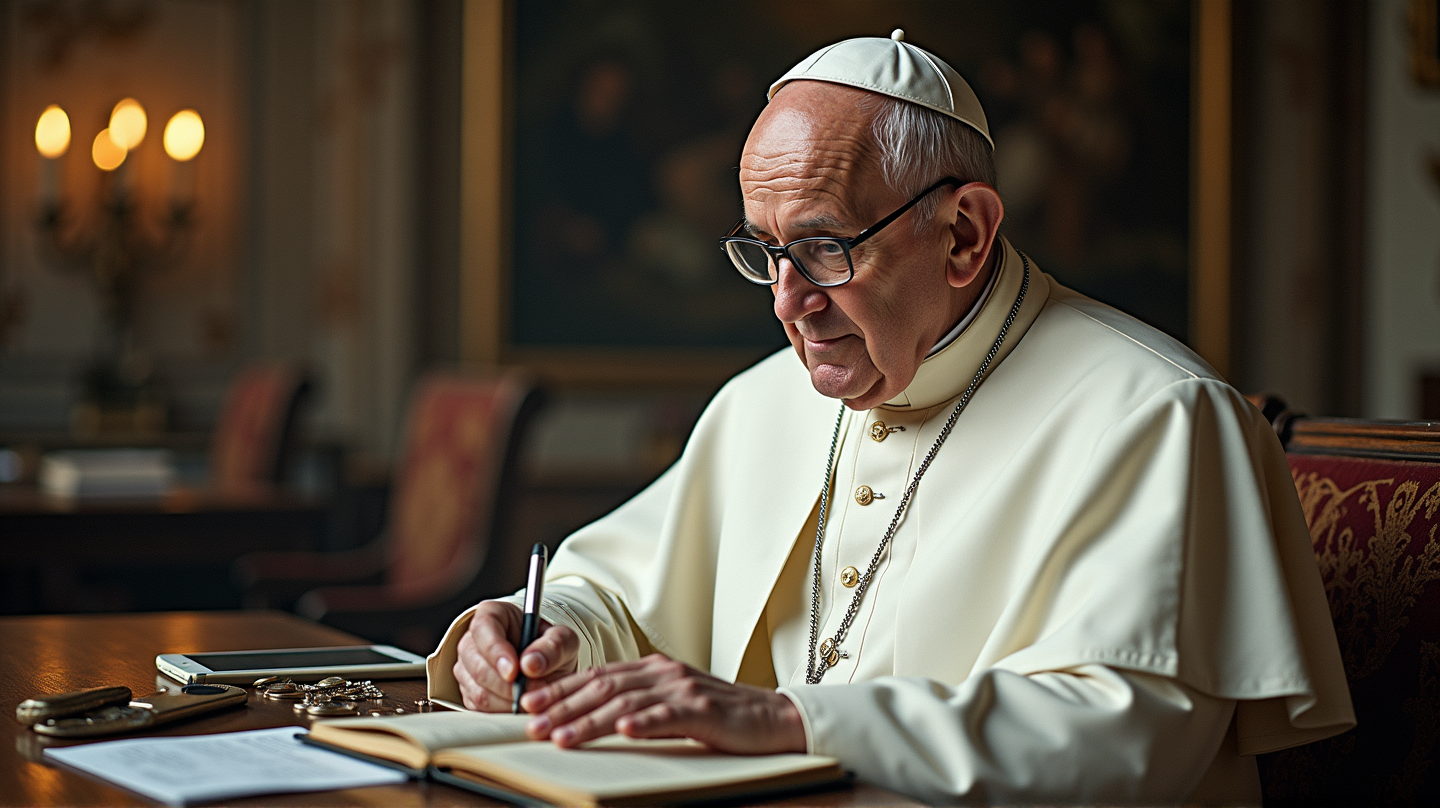Pope Francis Leads Catholic Charge on Economy and Ecology Reform
Expert Nathan Schneider discusses Pope Francis' influence on Catholic perspectives regarding economic, ecological, and technological matters.

In recent years, Pope Francis has been at the forefront of shaping Catholic thought on pivotal issues such as economics, ecology, and technology. His encyclical “Laudato Si’” and other statements have called for a holistic approach to economic reform and environmental stewardship, emphasizing the interconnection between humanity and the Earth.
An Intersection of Faith and Technology
Nathan Schneider, an Assistant Professor of Media Studies at the University of Colorado Boulder, delves into how Pope Francis is steering the Catholic Church’s approach towards these modern challenges. As a Senior Resident Fellow at the Center for Media, Religion, and Culture, Schneider brings a unique perspective to the conversation, highlighting how faith and technology can coexist and advance societal benefit. As stated in Newswise, Pope Francis’ approach marks a radical shift that brings traditional values face to face with contemporary technological realities.
Economic Justice in the Papacy
Pope Francis’ vision extends to rethinking how economic systems serve humanity, advocating for justice and equitable distribution of resources. Schneider, author of several influential books like “Everything for Everyone,” argues that this approach is reshaping not just theological discourse but also practical economic models within the Catholic community. He points out the growing engagement with these themes in publications such as The Nation and The Guardian, reflecting a worldwide recognition of the necessity of these changes.
Ecological Commitment as a Spiritual Calling
Pope Francis has repeatedly urged humanity to consider the moral dimensions of ecological responsibility. His teachings insist that caring for the planet is not just an environmental issue but a moral one that intersects with spiritual mandates. Schneider, a contributing writer at America magazine, discusses how Catholics worldwide are being encouraged to view ecological conservation as a spiritual duty as much as a social one.
The Ripple Effect in the Church
The influence of these teachings has implications far beyond the church. They are pivotal in influencing international discussions around climate policy and sustainable development. Schneider emphasizes how educational initiatives by the Church and related organizations are vital in promoting these messages to younger generations who will shape future policies and societal norms.
In the evolving landscape of religious engagement with global issues, Pope Francis’ leadership represents both a continuity of timeless values and a progressive dive into new realms of impact. With thought leaders like Nathan Schneider contributing to this dialogue, the Catholic Church continues to embody a vital voice in the global conversation on creating a fairer and more sustainable world.





